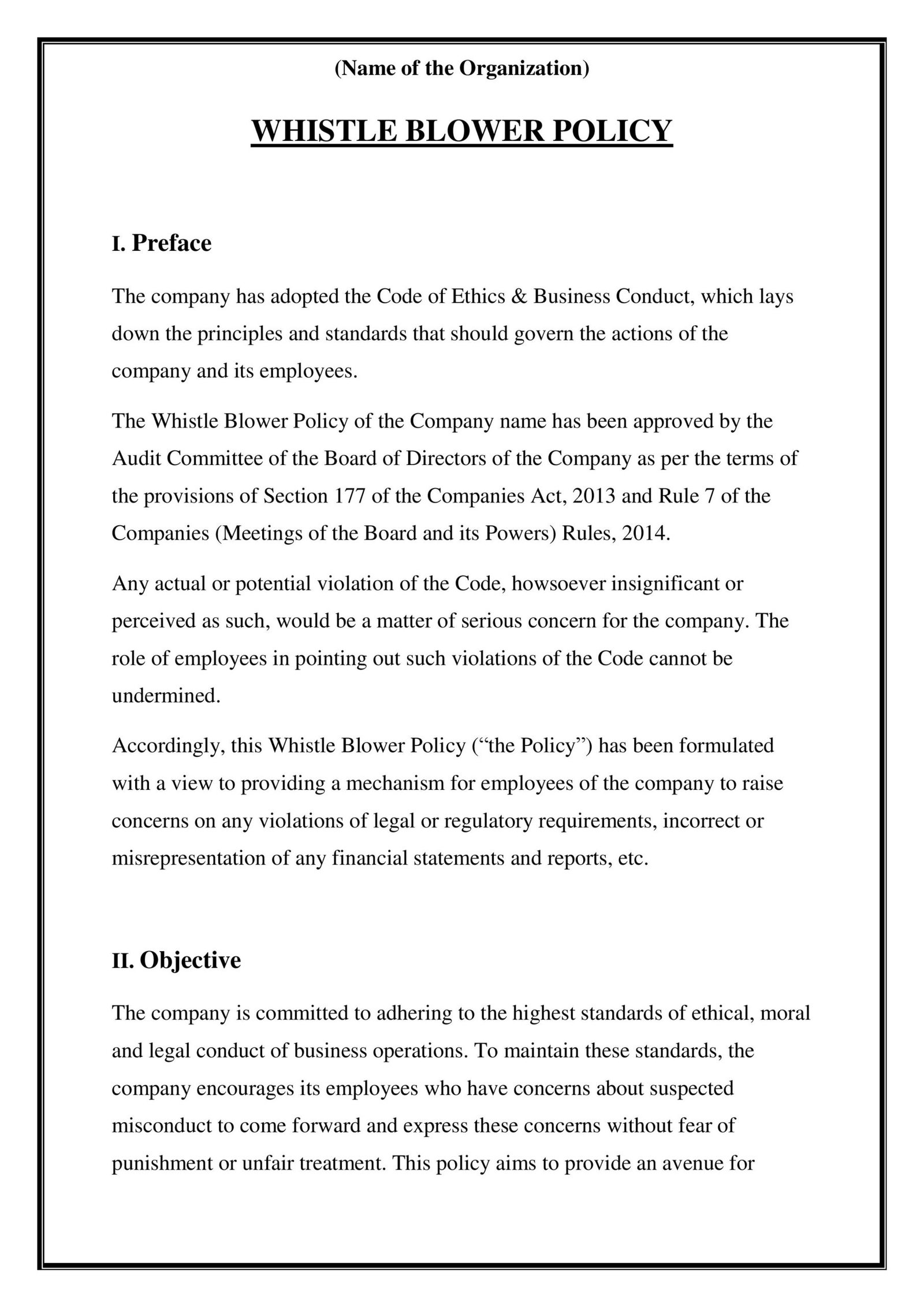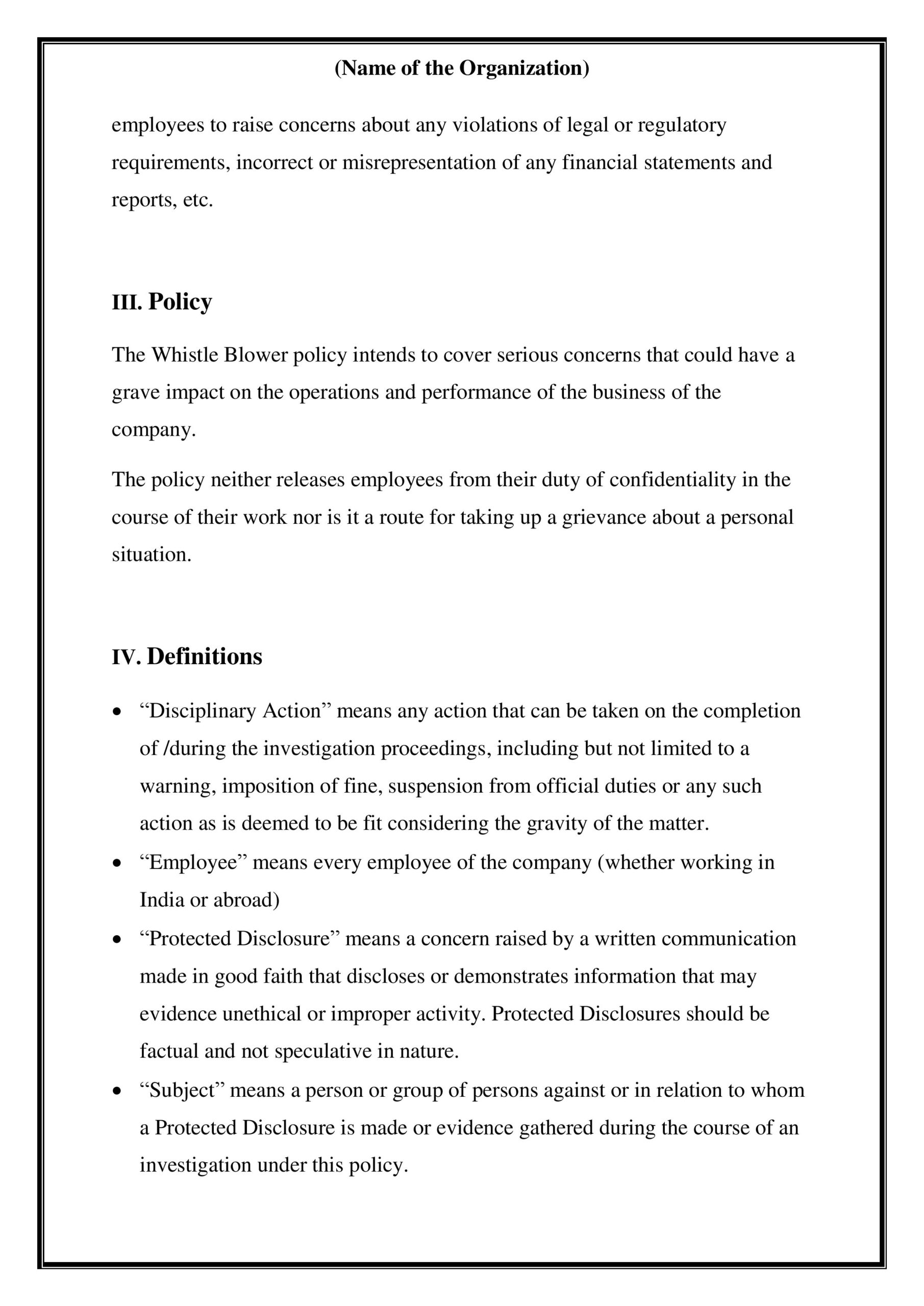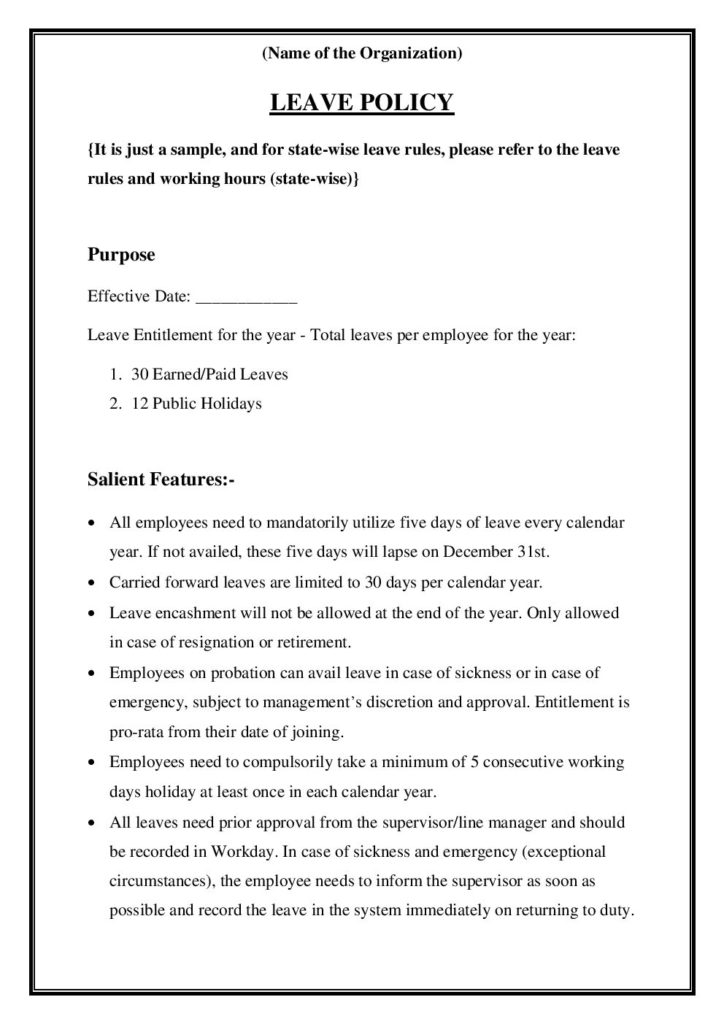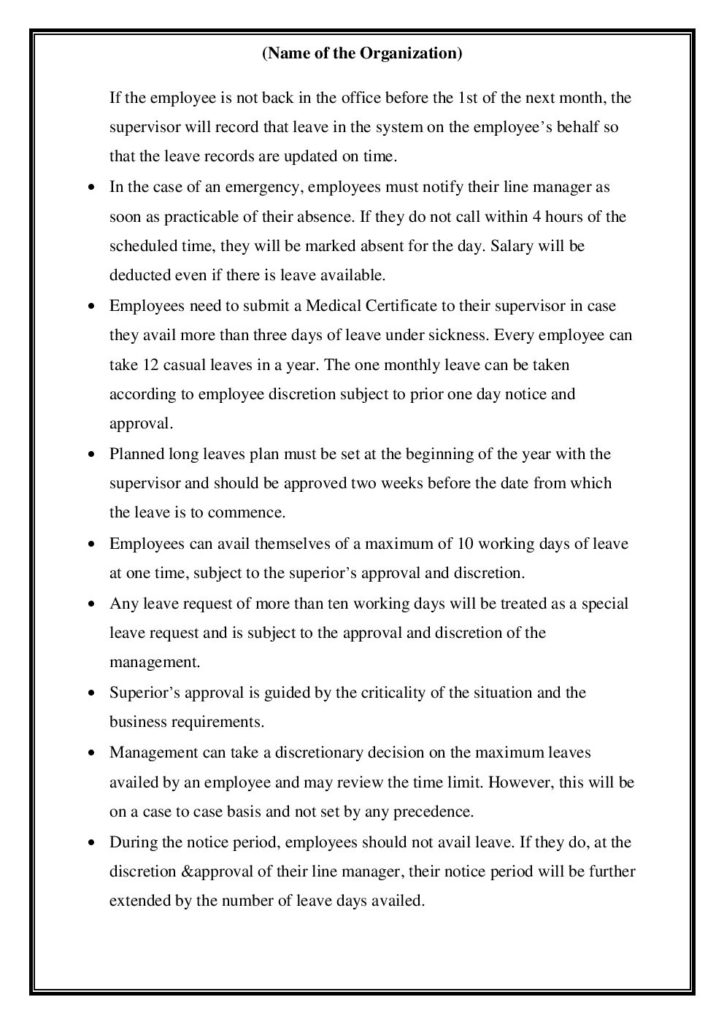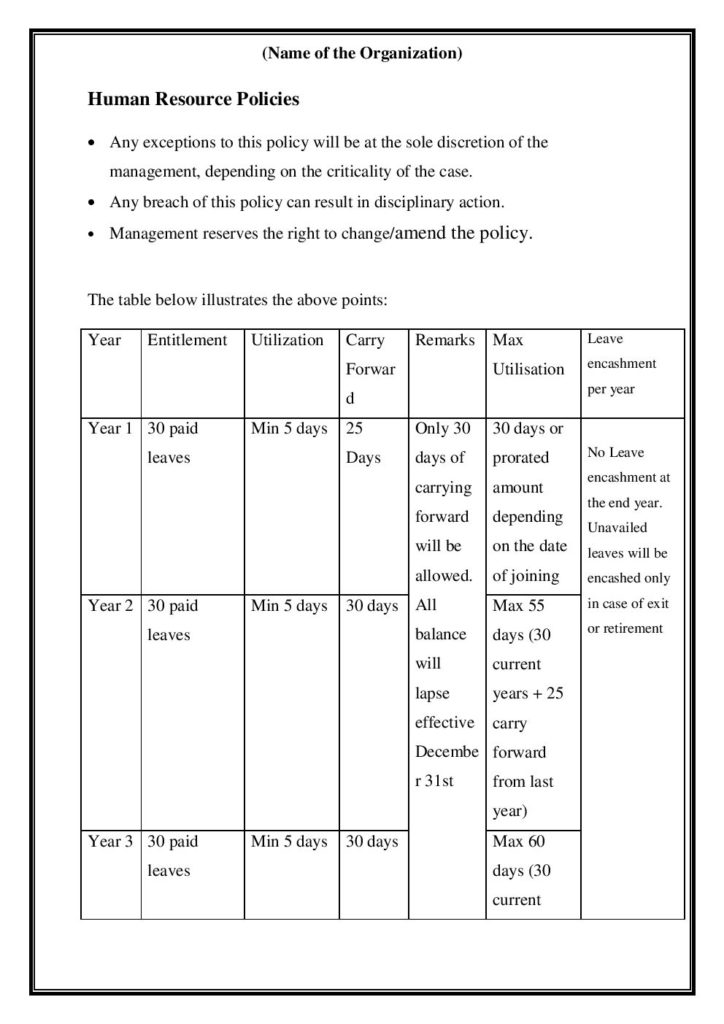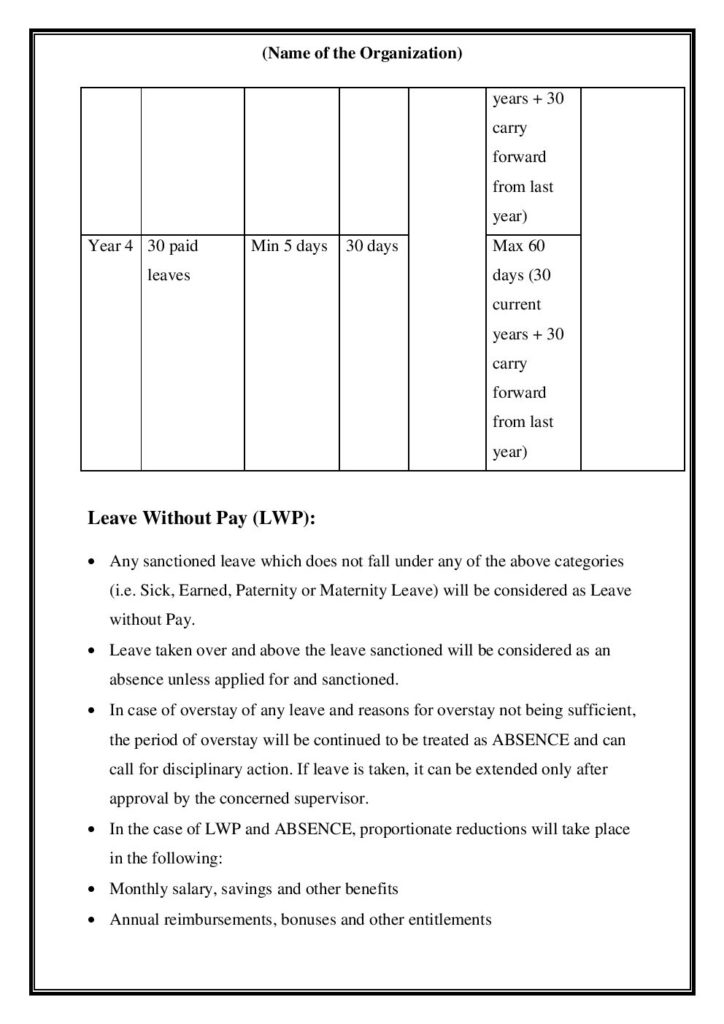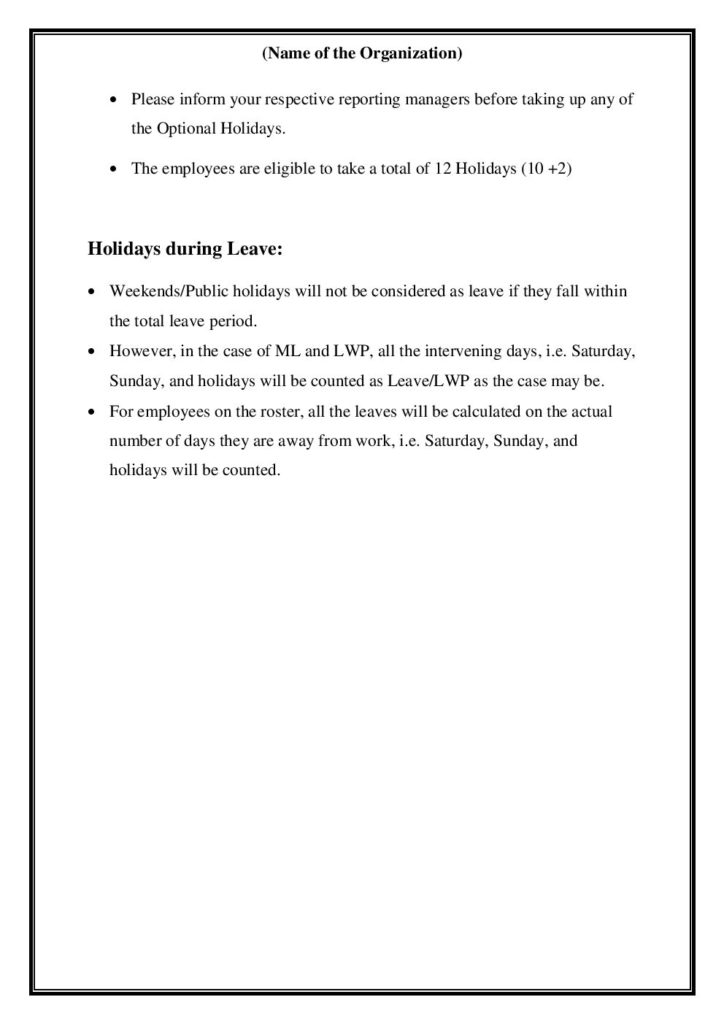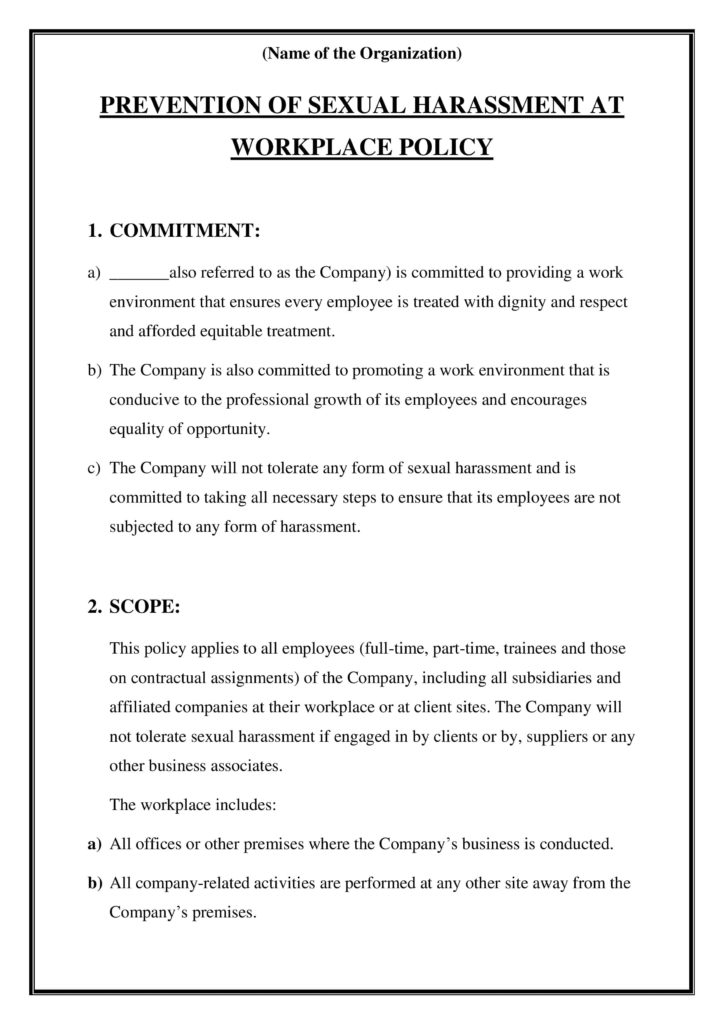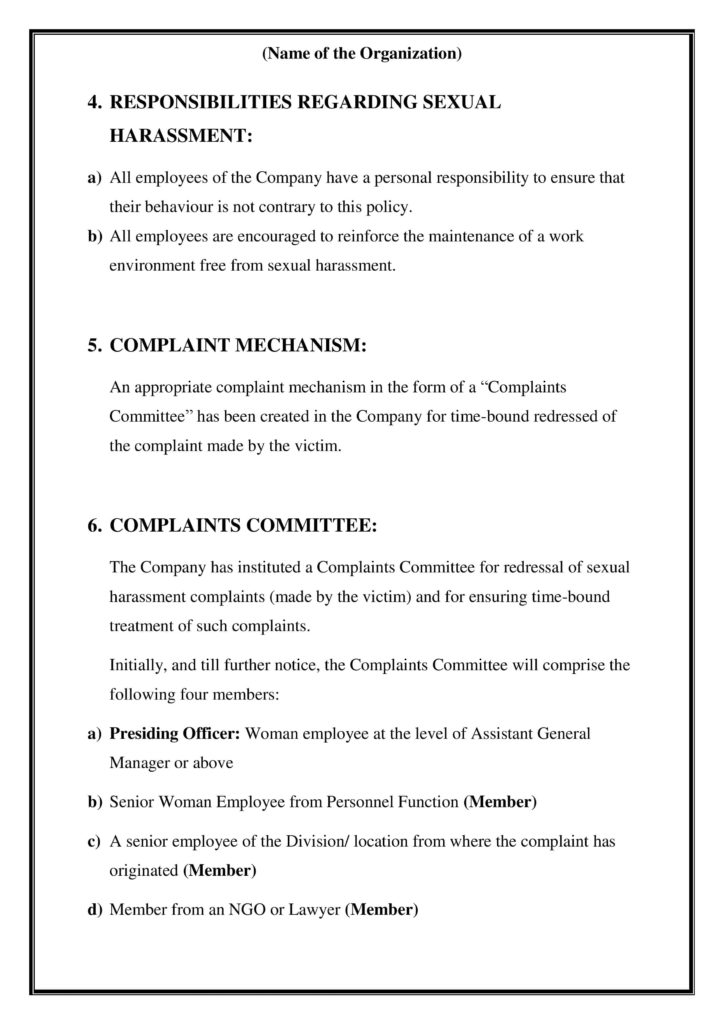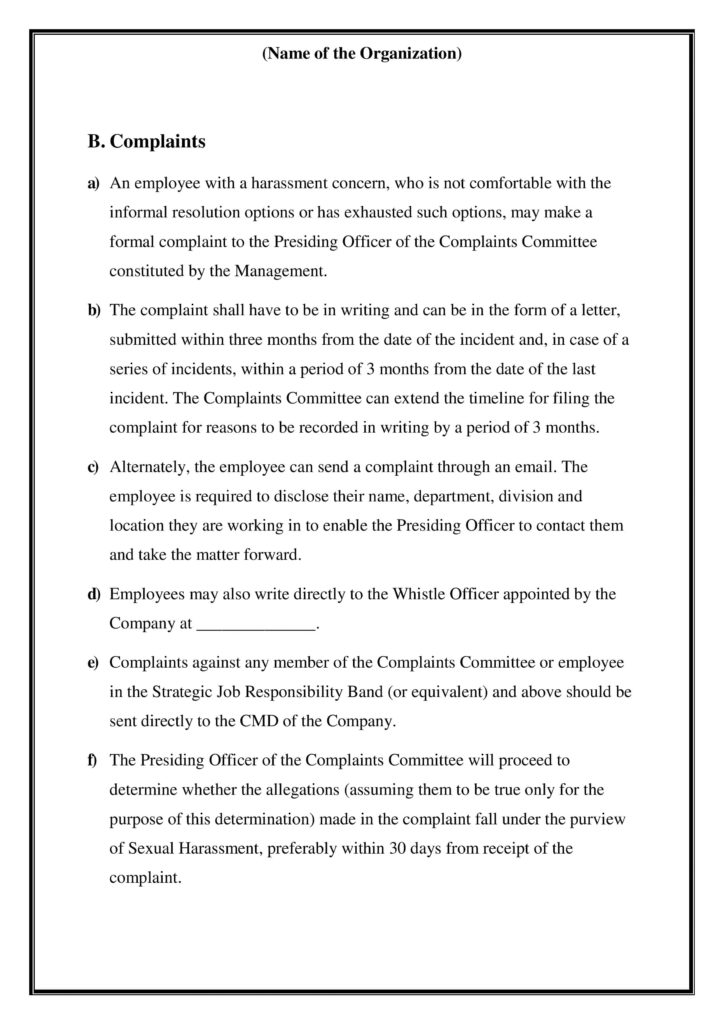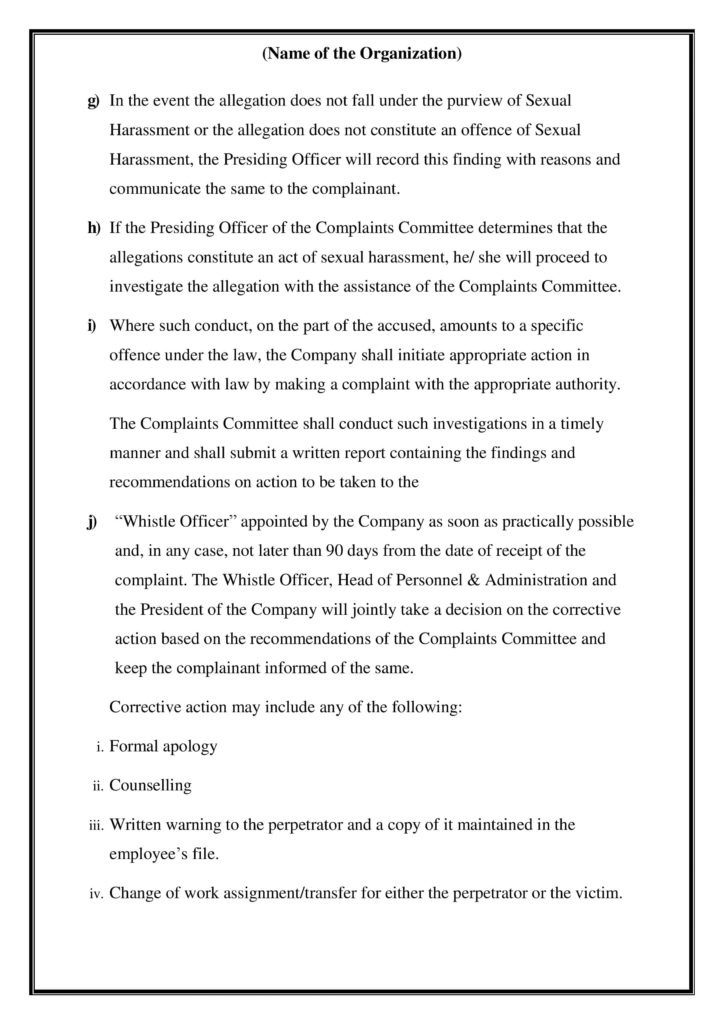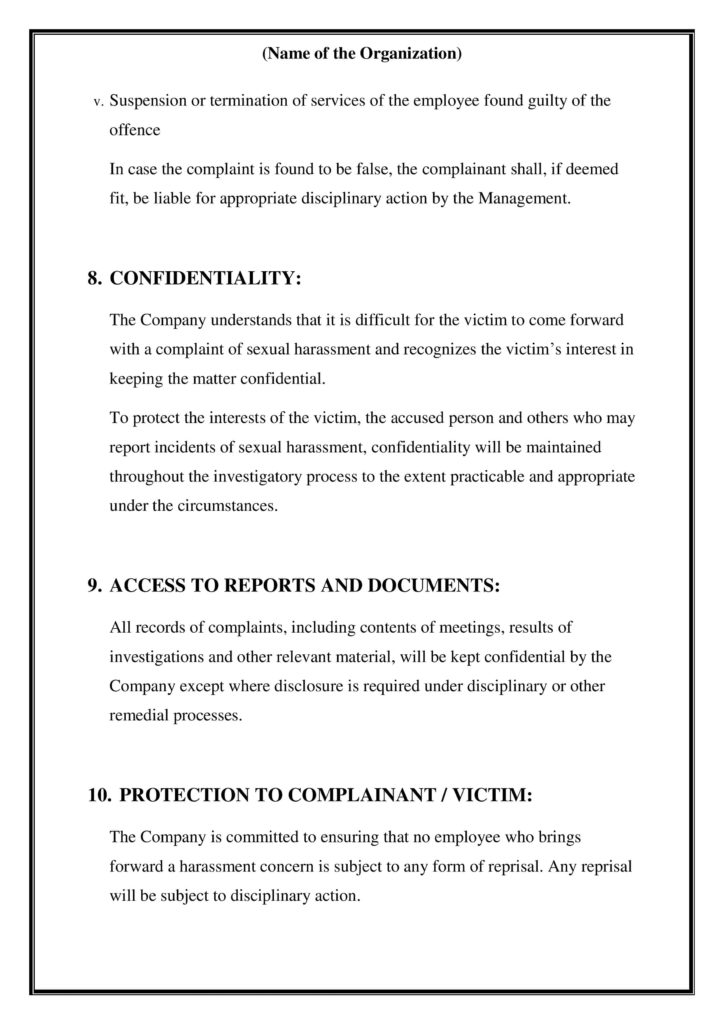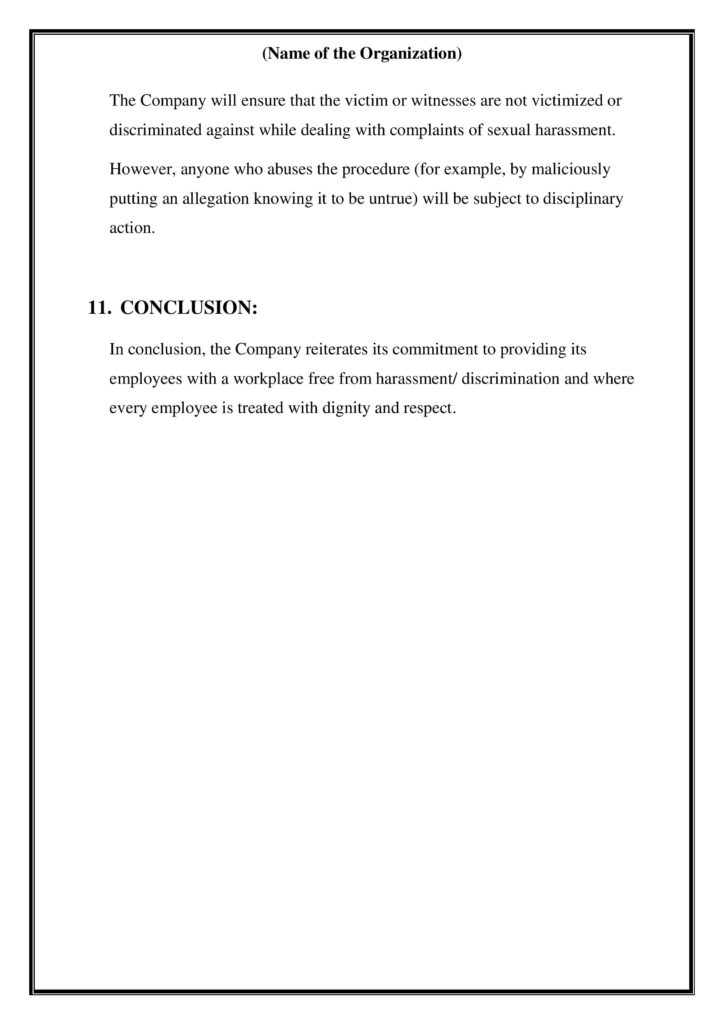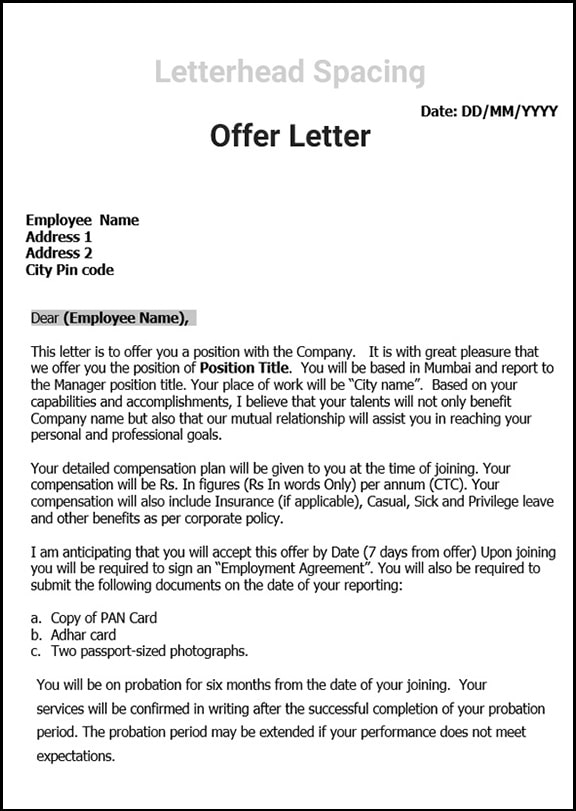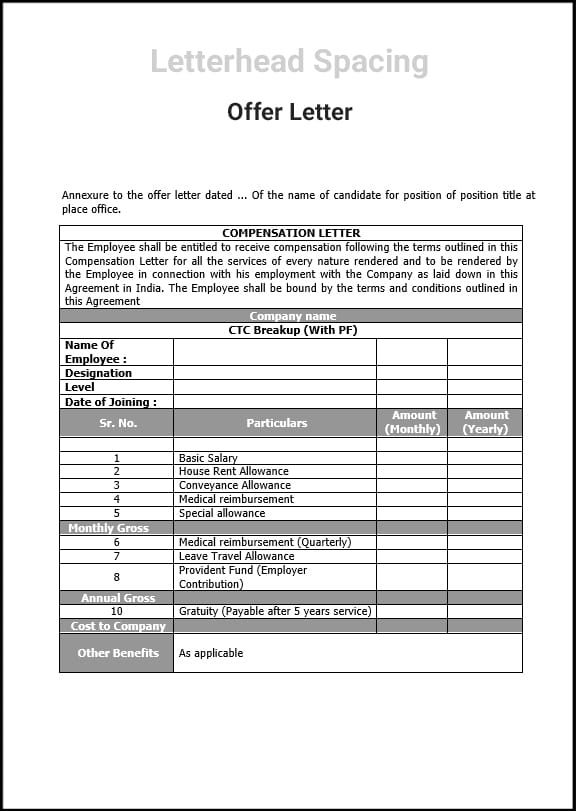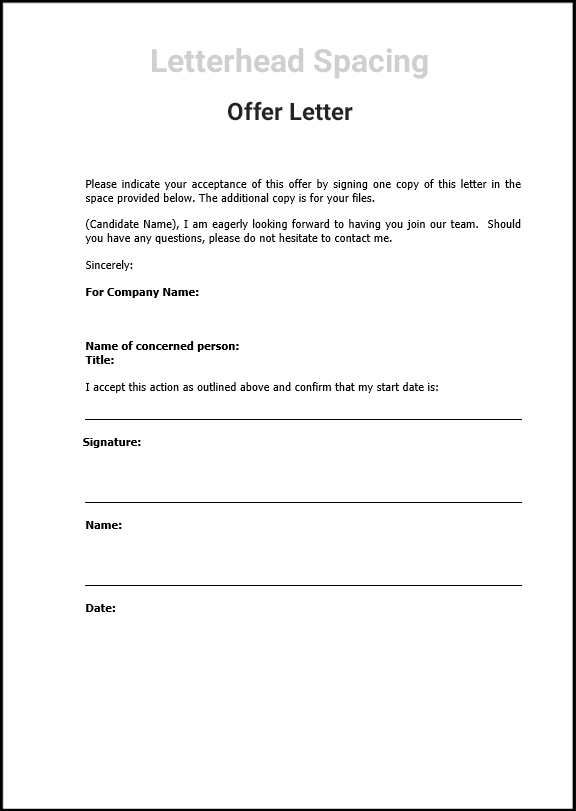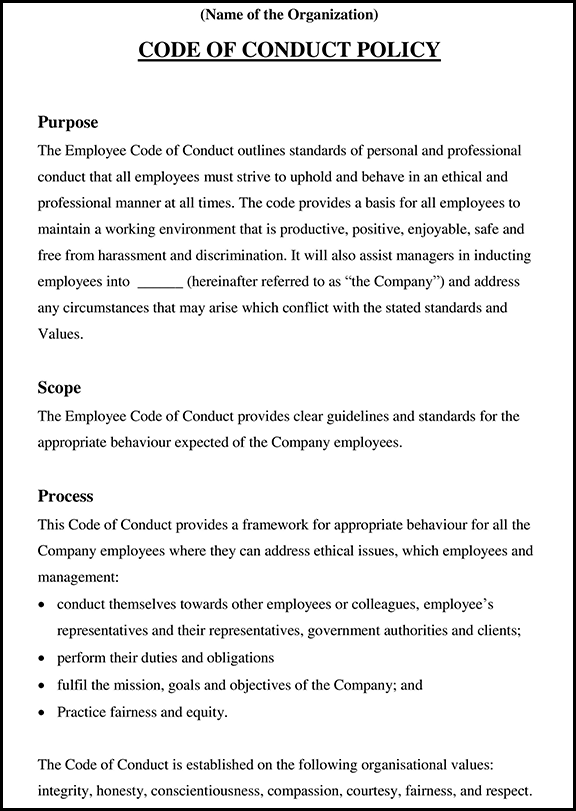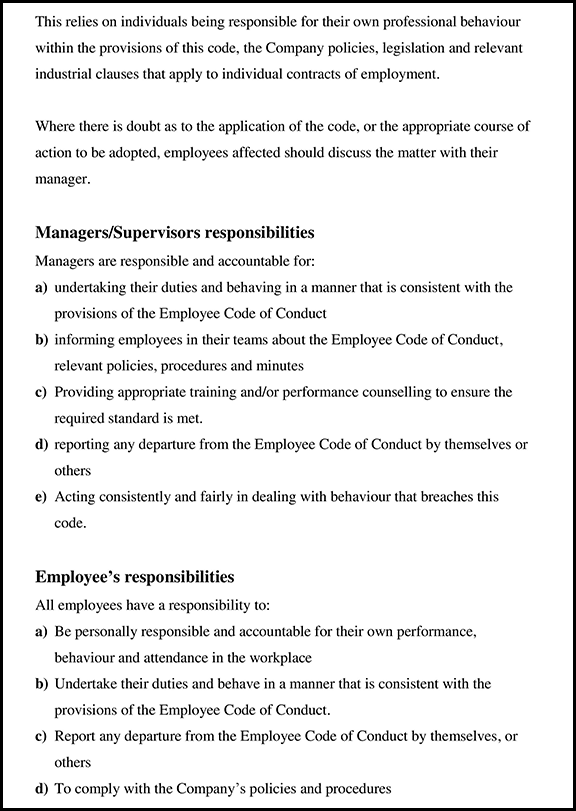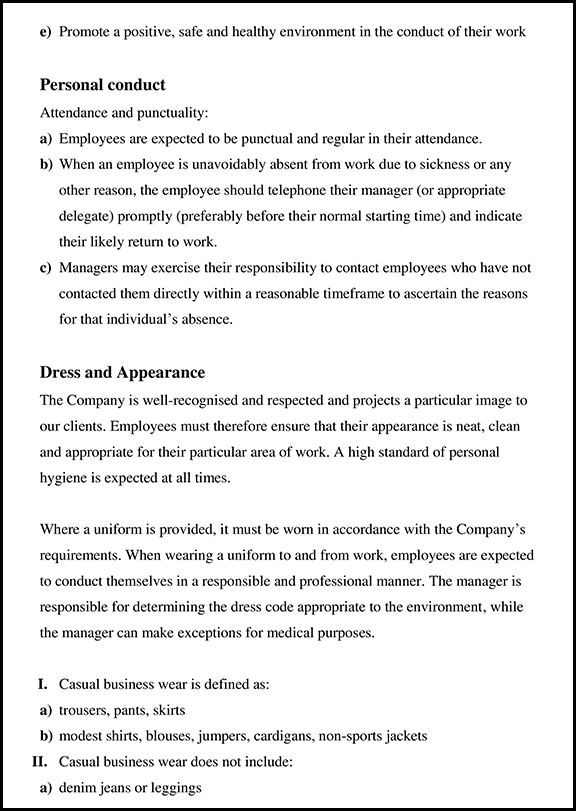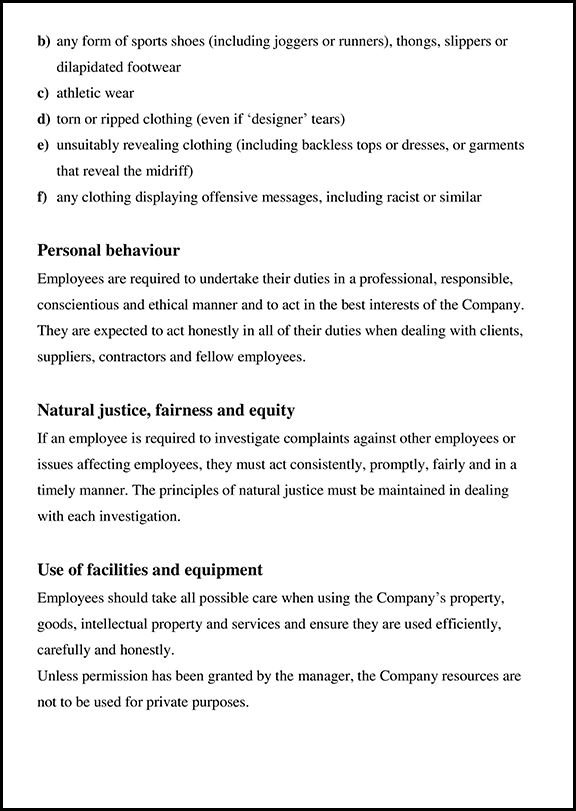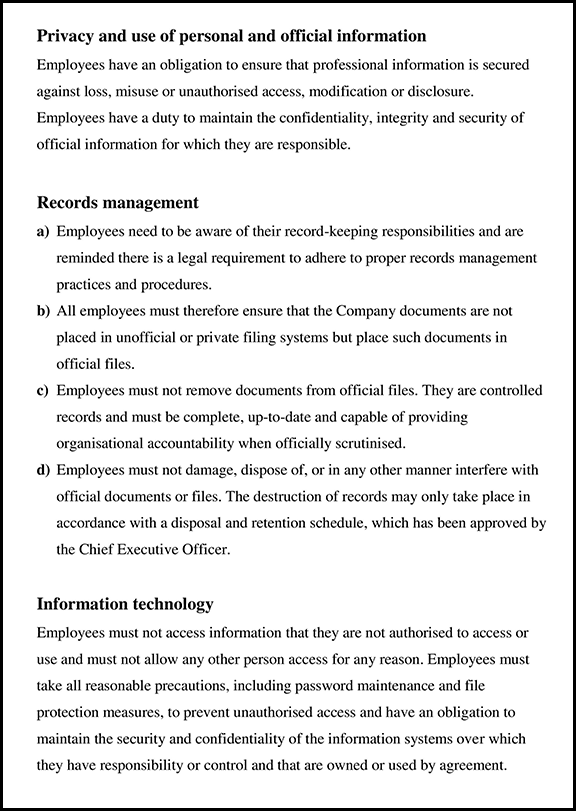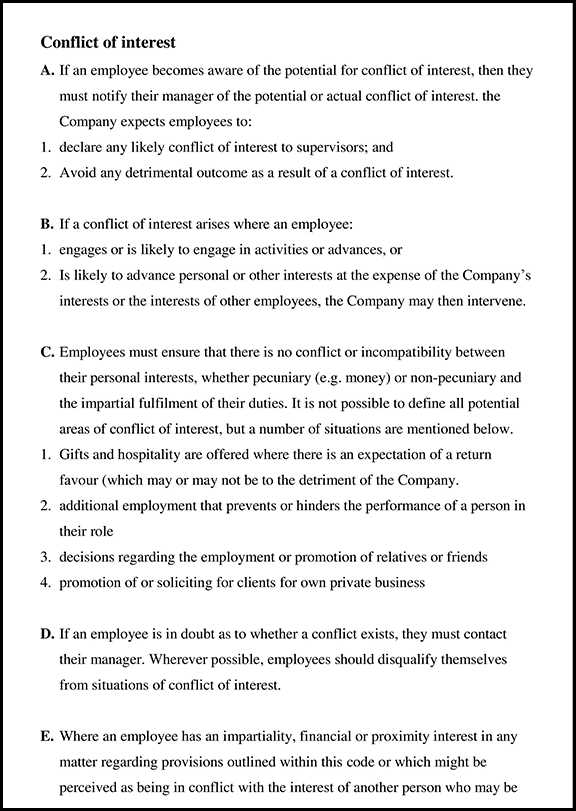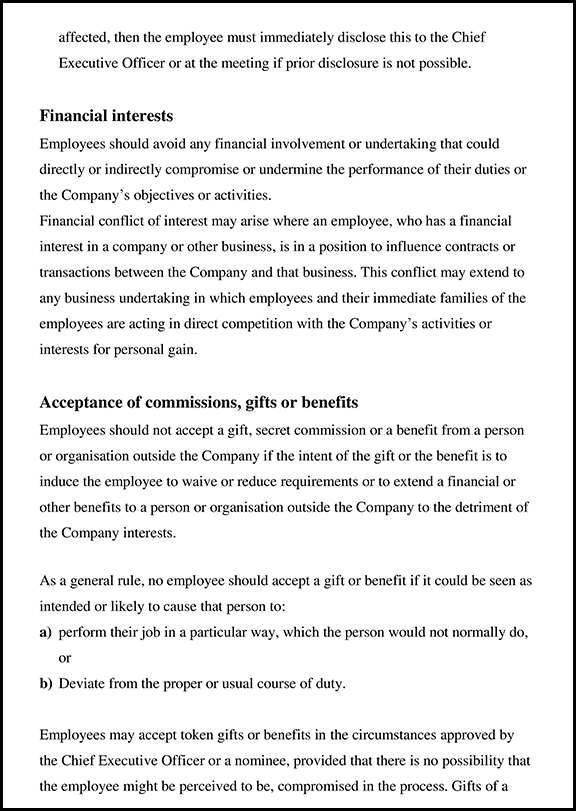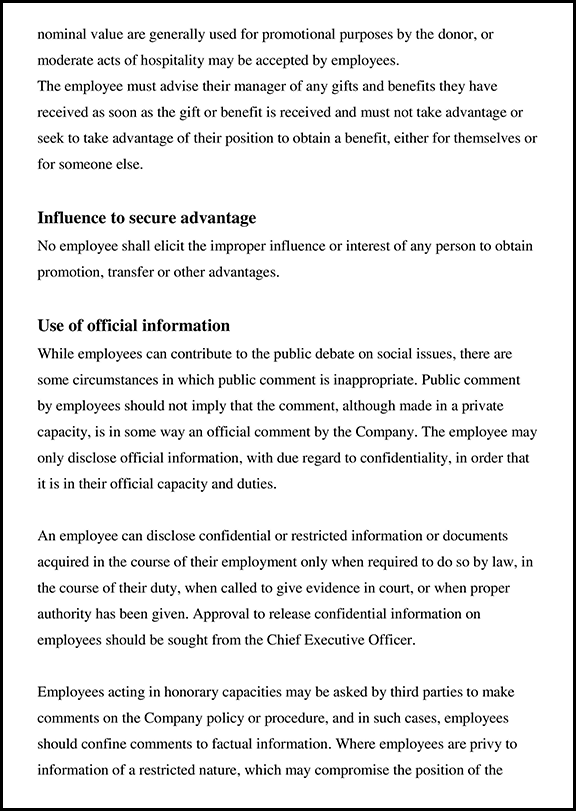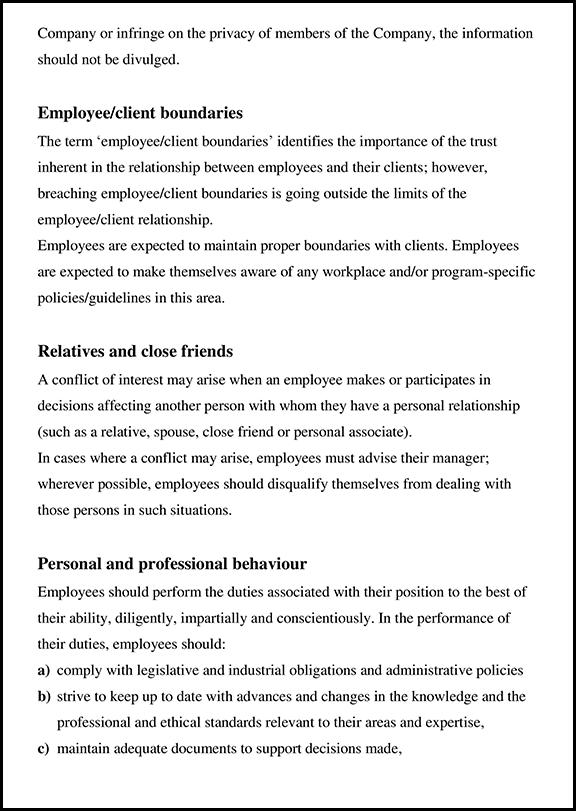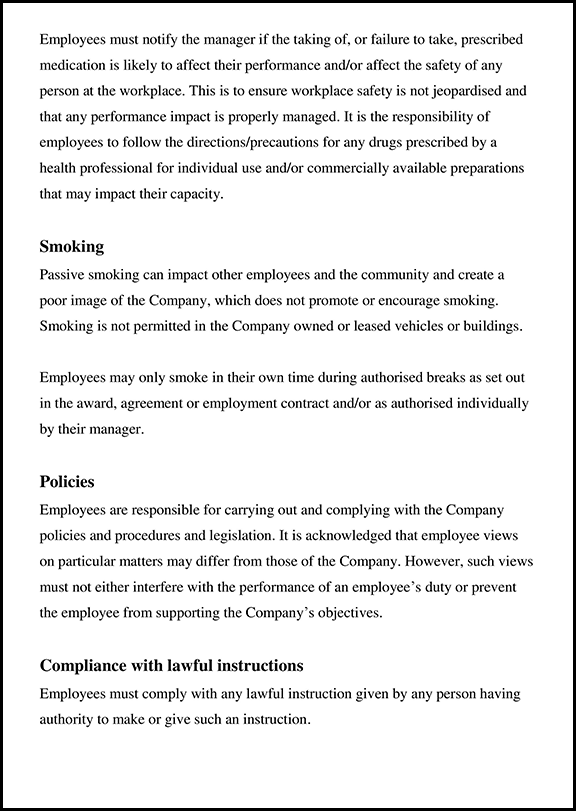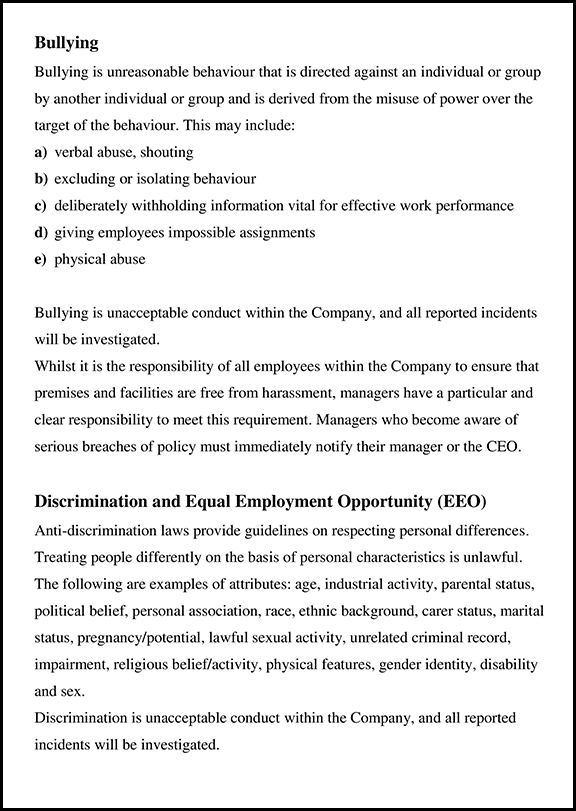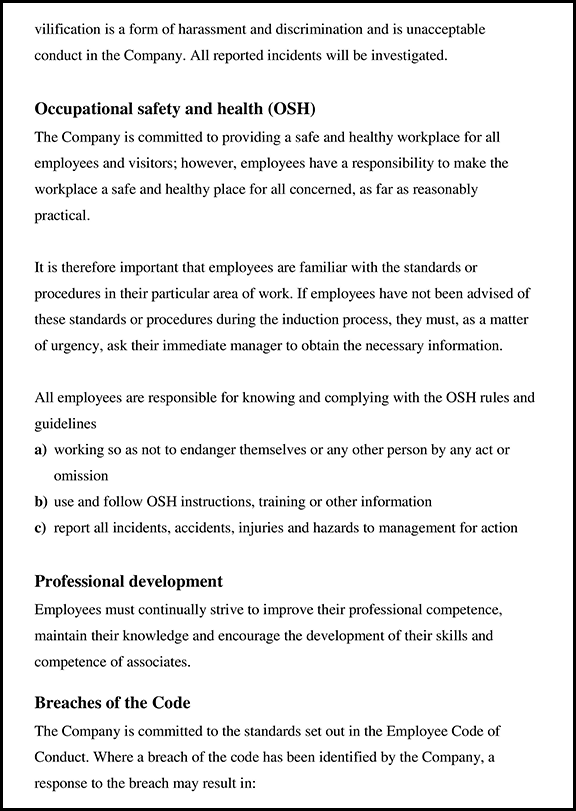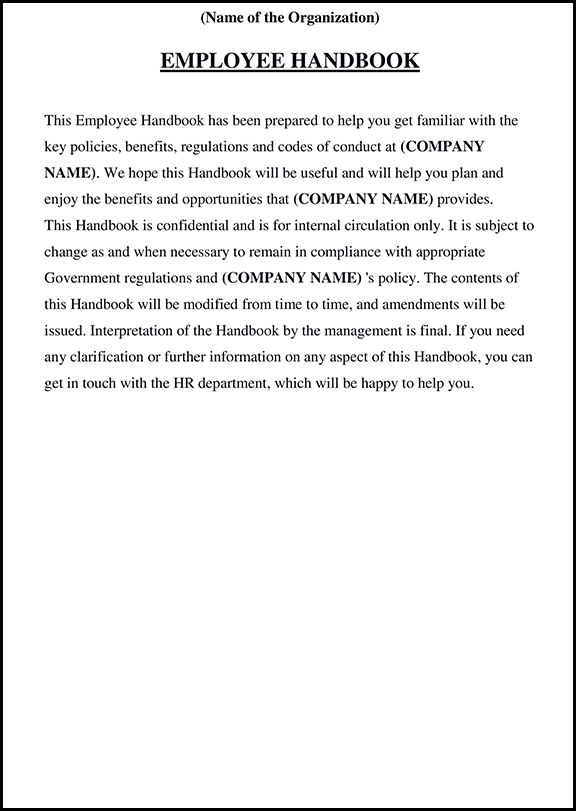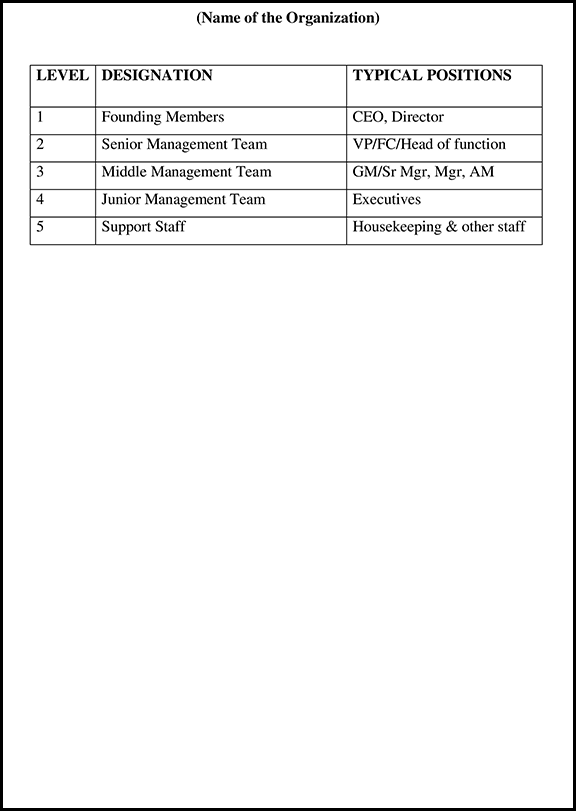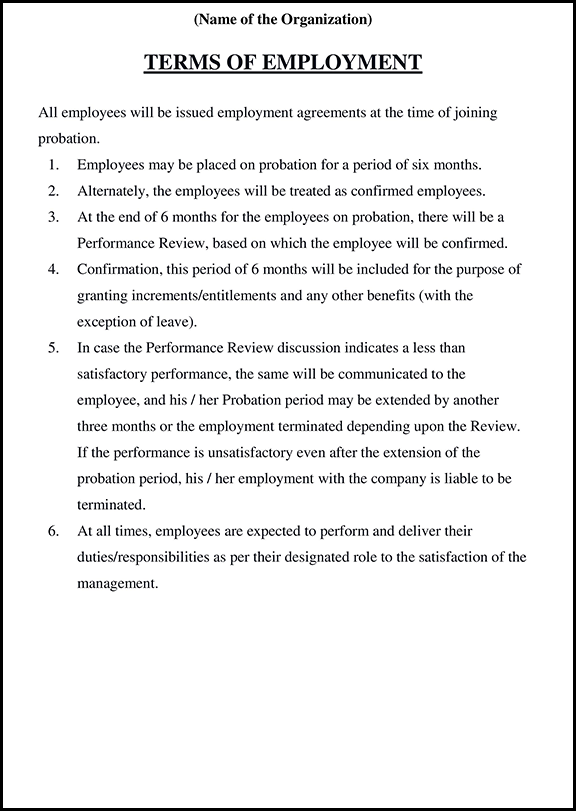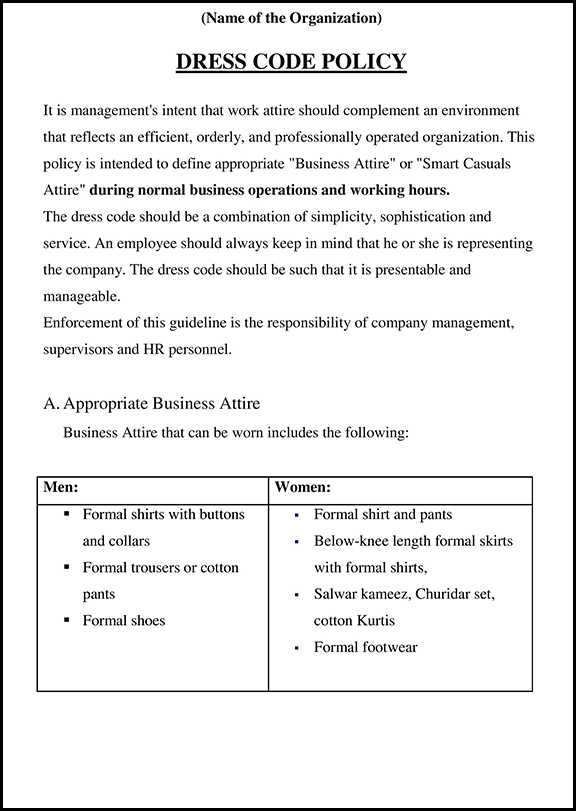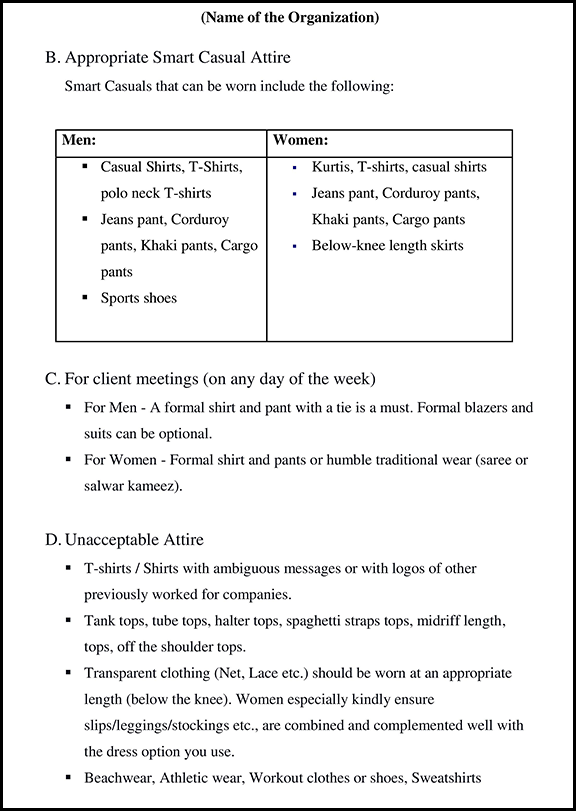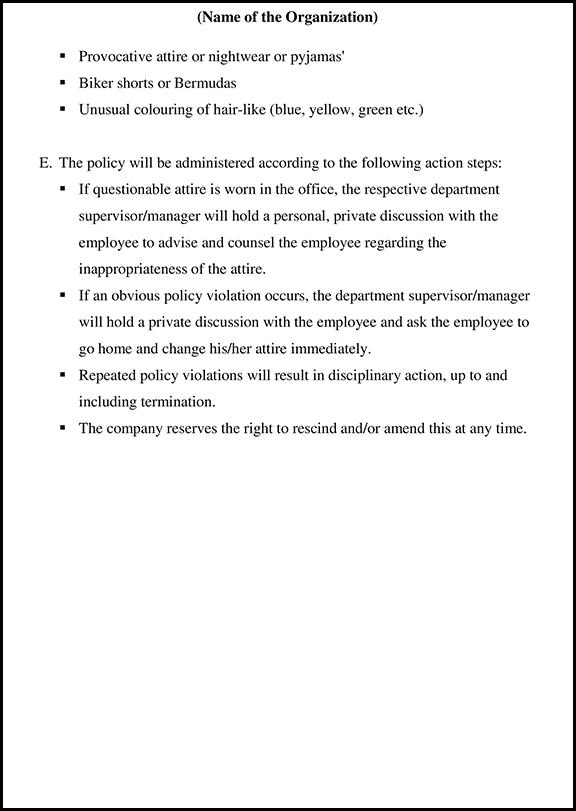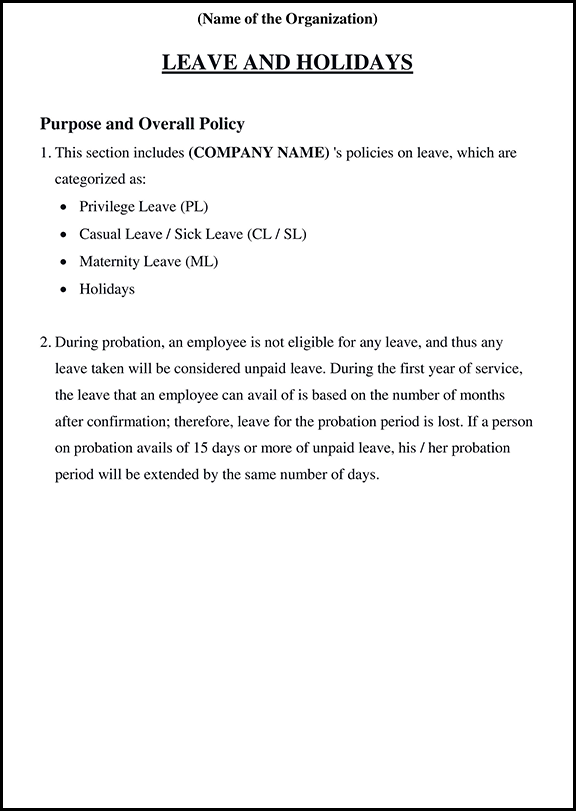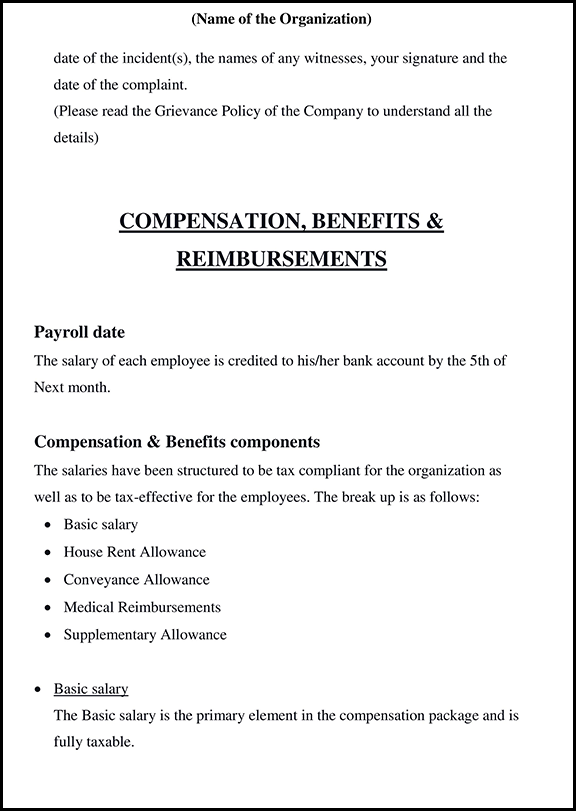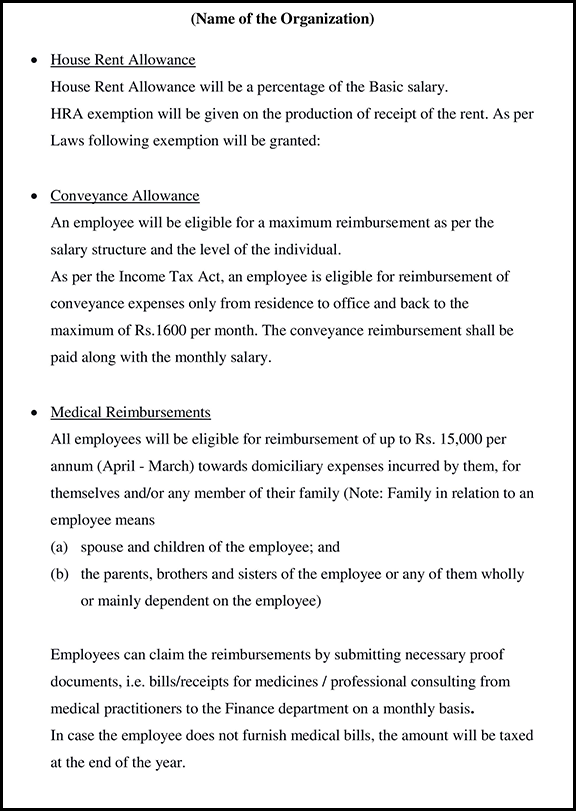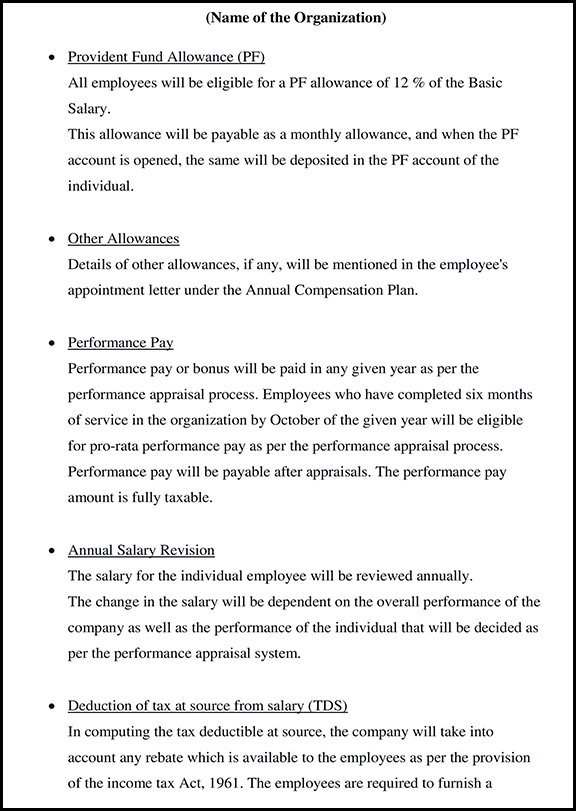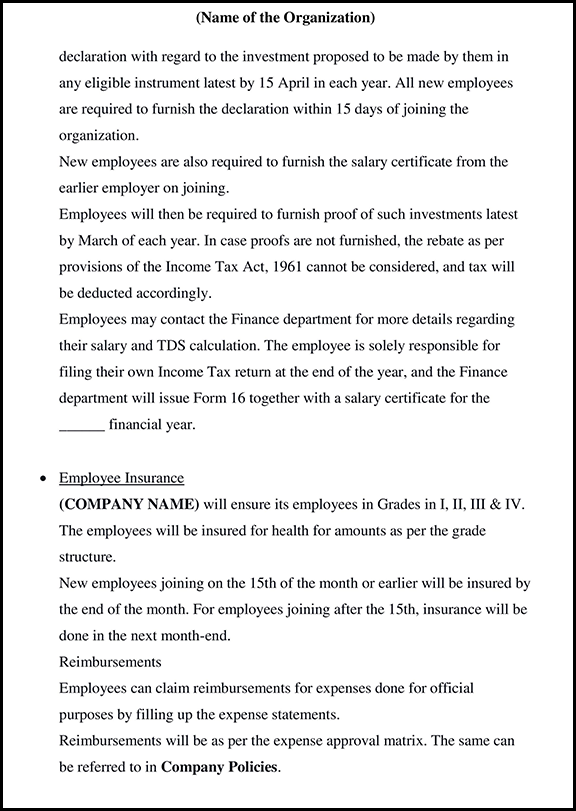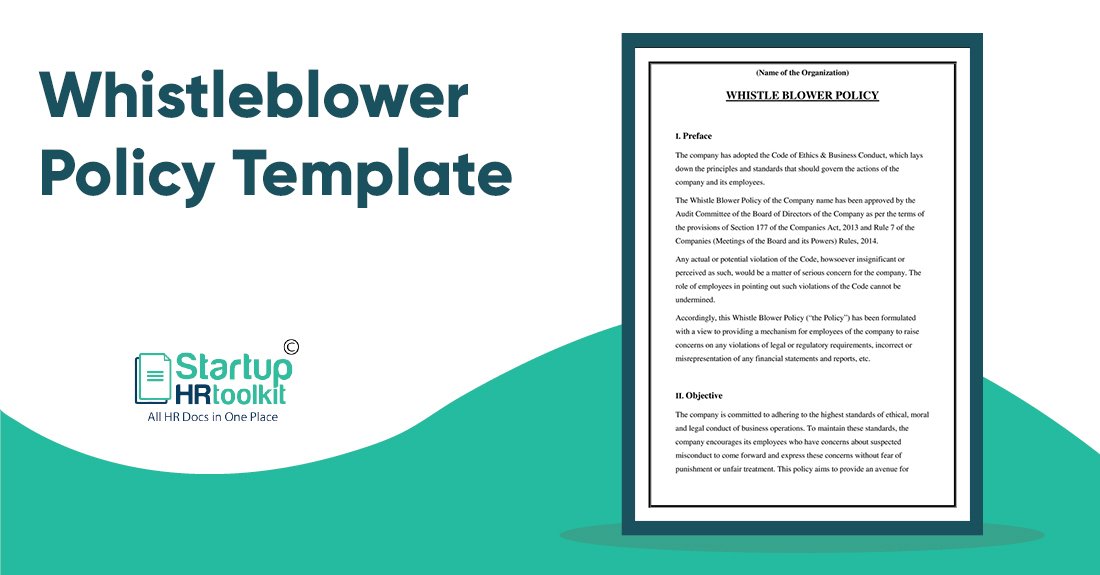
Whistleblower Policy Sample
Whistleblower Policy Template
What is Whistleblower Policy?
A Whistleblower Policy is a set of procedures and guidelines that an organization puts in place to protect employees who report violations of laws, regulations, policies, or ethical standards. It outlines how employees can report misconduct and how the organization will respond to and protect them from retaliation or other repercussions. Whistleblower policies ensure employees feel safe speaking out and that organizations remain compliant and ethically responsible. It also assures that employees who report concerns in good faith will not be subject to retaliation or harassment.
Under the whistle-blower policy, the name itself gives the definition that blows the whistle and raises your voice which means that employees can visit the higher authorities if they witness any illegal or unethical activities like IT cyber security fraud, code breaching, and not following proper code of conduct.
Guidelines for Whistle Blower Policy Sample
To ensure that all employees abide by the policy, one needs to implement the guiding principles under the whistleblower security policy as follows:
1. Ensure that the person reporting the incident, or the whistleblower, is not treated differently or victimized after doing the needful.
2. After the complaint, proper disciplinary action is taken against the person, and the matter is considered severe.
3. Ensure employees are properly trained and educated on the whistleblower policy.
4. Ensure the whistleblower policy covers all reporting forms, including anonymous reporting.
5. The evidence regarding the matter should be protected at all costs and in no way is to be disclosed.
6. If anyone tries to destroy or harm the protected disclosure, strict disciplinary action should be taken against the person.
7. Establish a system for investigating and responding to whistleblower reports.
A whistleblower policy sample creates an open and accessible environment where employees can report all wrongdoings and raise awareness against any illegal or unethical practices in an organization.
What is the Investigation Process?
The investigation gathers evidence and information about a person, event, or situation to answer questions or solve a problem. An investigation typically involves interviews, documents, and other evidence-gathering techniques. In some cases, investigators may use surveillance or law enforcement techniques. The investigation results are usually presented in a report or other document. Investigations may be conducted by individuals, groups, or organizations and can be either criminal or civil.
Support Whistleblowers During the Investigation
1. Ensure the whistleblower knows the process, including their rights and responsibilities.
2. Provide emotional support and encouragement during the process.
3. Offer legal advice and resources to help protect the whistleblower from retaliation.
4. Ensure the whistleblower is kept informed about the progress of the investigation.
5. Provide access to counseling services if needed.
6. Provide other necessary resources to help the whistleblower transition back into their job and everyday life after completing the investigation.
Protection Favoring the Whistle Blower
Under the whistleblower policy in India, an employee that goes to his employer with complaints against perpetrators of fraudulent behavior will not face any retribution or consequences. He will not be at risk of such actions even if he confronts facing them or even if he reports on senior management officials breaking the law. The company’s employees need not worry about losing their job or issues like refusal of promotion, demotion, or transfer.
Any influence of power, whether direct or indirect, prevents a whistleblower from carrying out their duties or tasks—including making subsequent protected disclosures—due to disclosing following this Policy.
The protection is provided to the whistleblower based on the following:
1. They believe that the disclosure made was in good faith.
2. The whistleblower believes that their information and allegations are accurate.
3. Whistleblower is not doing this for their benefit.
Roles and Responsibilities as a Whistleblower
1. If, as an employee, you come across any cruel practice, then you are responsible for bringing it to the attention of the authorities. They must have enough grounds for concern, even if they are not to offer proof. If there is a delay in the process of reporting, then there might be a financial loss or evidence.
2. When expressing concern, avoid remaining anonymous.
3. Ensure that you follow the procedure while disclosing any complaint.
4. Support the investigating team by maintaining complete confidentiality.
5. The whistleblower policy aims to bring serious issues forward. It is not meant for trivial reports. Employees should refrain from using their legal options under this Policy to express their ill will or settle personal grudges. Disciplinary action will be provided against those who ‘call out’ malicious claims made by employees.
6. Ensure the confidentiality of the people involved in the matter or malpractice. If you disclose information like this, it might affect and destroy essential evidence.
7. If, in any case, the whistleblower is not satisfied with how the whistle-blowing officer or the committee is carrying out the investigation, they can directly contact the CMD of the company.
Whistle Blower Policy Template
1. Introduction
This Policy protects employees from retaliation for reporting violations of laws, regulations, or company policies. This Policy also encourages employees to report any such violations to their employer.
2. Scope
This Policy applies to all employees of the Company, including directors and officers.
3. Responsibilities
Employees are responsible for reporting violations of laws, regulations, or company policies to their supervisor or designated representative.
4. Reporting Procedures
It’s essential to submit a written report to the employee’s supervisor or designated representative. Announcements should include the following:
- Information on the nature of the breach.
- The date and time of occurrence.
- Any other relevant information.
5. Non-Retaliation
No employee shall be retaliated for reporting a violation. Retaliation includes but is not limited to, any form of discrimination, demotion, suspension, or other adverse employment action.
6. Confidentiality
Keep any reports of violations as private as possible.
Download Full Version
Created by India’s top HR experts
Just Rs. 999 Rs. 499
How To Use?
Fill In The Blanks
 Customize Template
Customize Template
 Save, Print, Done.
Save, Print, Done.
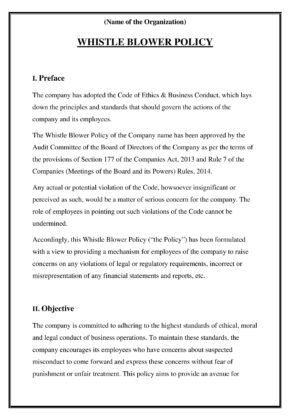
Download Whistleblower Policy Template.
→ Editable in MS Word & Google Docs
→ Full Version
→ Created by India’s Top HR Experts
→ Used by HR professionals at Dream11, Razorpay, Mamaerath & more
Rs. 999 Rs. 499
Download StartupHR Toolkit Instantly & Access Largest Collection HR Documents.
The only Toolkit to solve all your HR problems in minutes.
Legally compliant and govt approved HR documents.
24×7 customer support over chat & calls (during daytime).
FREE HR audit.
Up to date documents as per the latest Statutory Law.
3 FREE customized documents with Gold Plan.
Expert HR guidance.
Join a Community of 1,00,000+ HR Professionals


